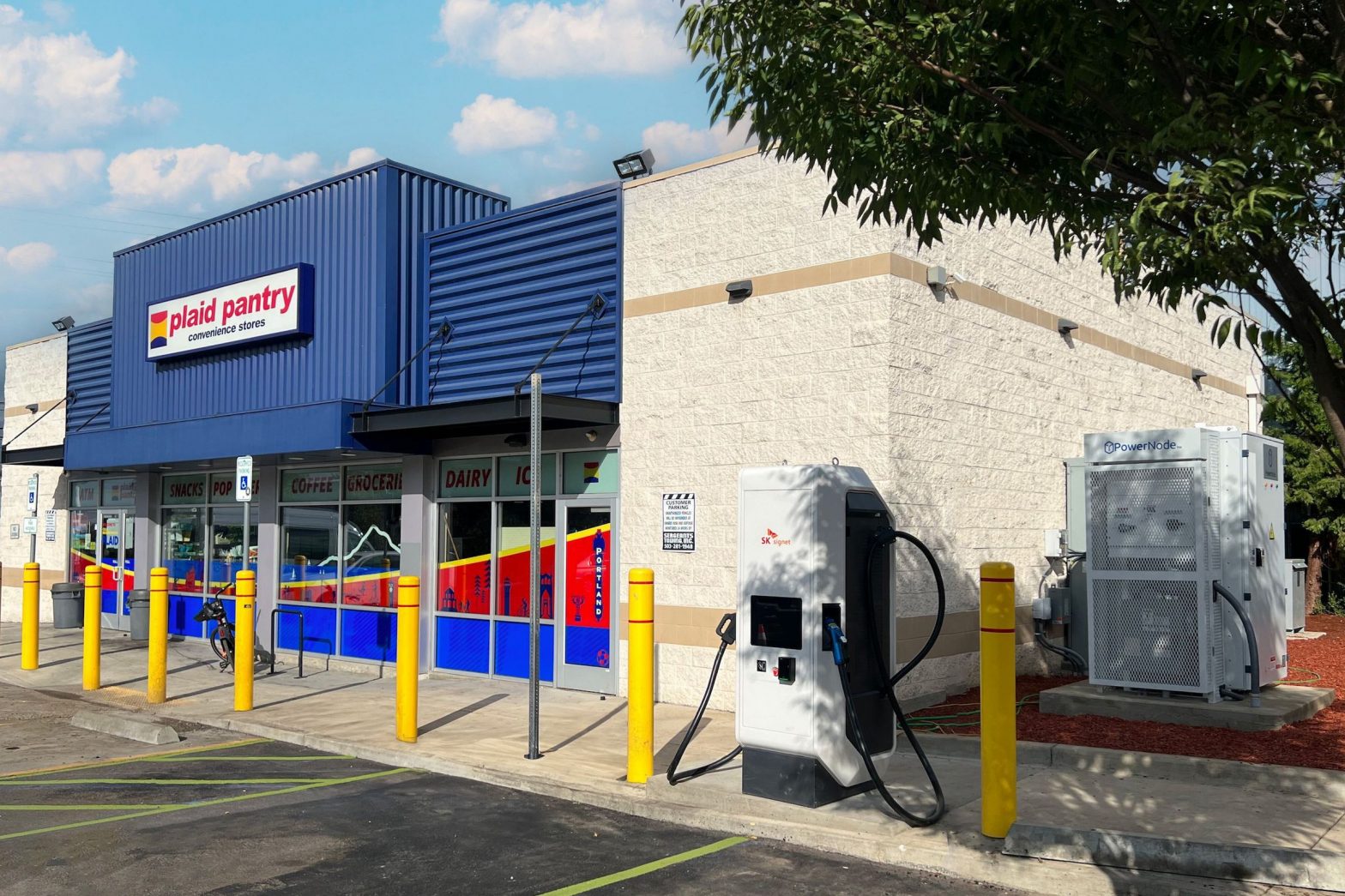/
EV charging system startup company Electric Era is building electric vehicle charging stations designed to work on even the grittiest of gas stations and convenience store lots without disrupting the local grid.
Share this story
:format(webp)/cdn.vox-cdn.com/uploads/chorus_asset/file/24977903/F7hWYnSWoAAB5lw.jpeg)
A young electric vehicle infrastructure company founded by former SpaceX employees called Electric Era has designed EV charging stations that convenience stores can buy and manage with minimal power upgrades. Now, with a new round of funding led by Chevron Technology Ventures, the startup hopes it can convince prospective buyers to ease in on the electric vehicle future, especially as gas station traffic eventually dwindles down.
People who drive gas cars exist in a more than-century-old ecosystem where they post up at a pump for up to 15 minutes to fuel up, use the bathroom, grab a soda and a pack of cigarettes, and maybe a lottery ticket or a crusty hot dog from the convenience store. However, those pumps and stores might not last as the world transitions over to electric vehicles, which are generally charged at home or sometimes at inconveniently located (and increasingly unreliable) EV charging stations.
Electric Era is offering an electric vehicle system for convenience stores that includes a “PowerNode” block that can handle even the most fragile grid power in the country. It includes its own management software and built-in battery pack, kind of like the ones homeowners can buy, but can charge EVs at accelerated DC speeds without stressing the grid. It also gives convenience store owners an opportunity to sell unused stored energy back to the grid as another revenue stream on top of new foot traffic courtesy of bored electric vehicle owners.
The first PowerNode EV fast charging station deployments from Electric Era are set to go online “in the coming weeks” at a Plaid Pantry store and a Space Age Fuels in the Portland, Oregon metro area, according to a press release. Before the end of 2023, the startup is planning another at Seven Feathers Travel Plaza in southwest Oregon, and more than 10 stations across seven states.
